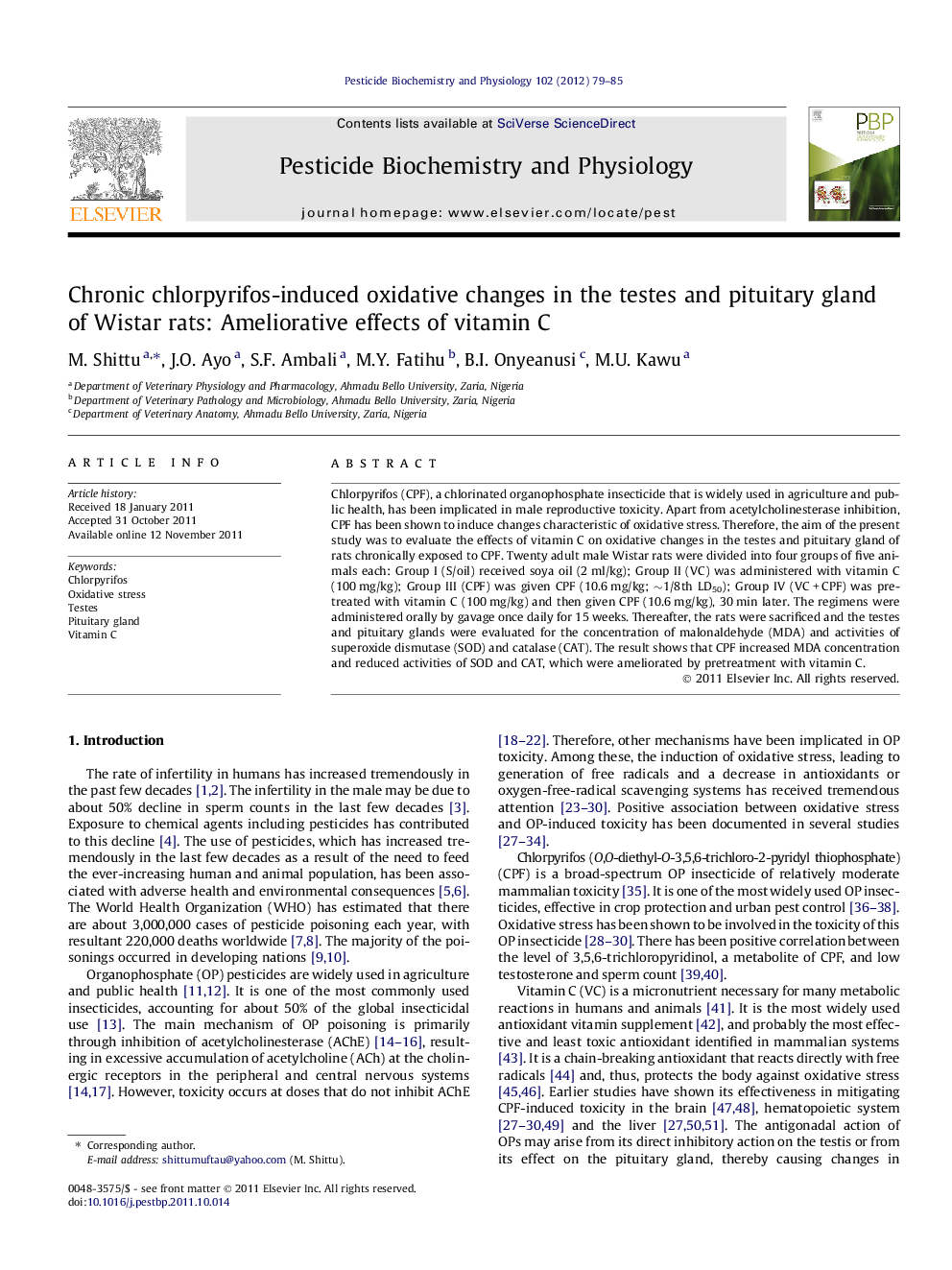| Article ID | Journal | Published Year | Pages | File Type |
|---|---|---|---|---|
| 2009682 | Pesticide Biochemistry and Physiology | 2012 | 7 Pages |
Chlorpyrifos (CPF), a chlorinated organophosphate insecticide that is widely used in agriculture and public health, has been implicated in male reproductive toxicity. Apart from acetylcholinesterase inhibition, CPF has been shown to induce changes characteristic of oxidative stress. Therefore, the aim of the present study was to evaluate the effects of vitamin C on oxidative changes in the testes and pituitary gland of rats chronically exposed to CPF. Twenty adult male Wistar rats were divided into four groups of five animals each: Group I (S/oil) received soya oil (2 ml/kg); Group II (VC) was administered with vitamin C (100 mg/kg); Group III (CPF) was given CPF (10.6 mg/kg; ∼1/8th LD50); Group IV (VC + CPF) was pretreated with vitamin C (100 mg/kg) and then given CPF (10.6 mg/kg), 30 min later. The regimens were administered orally by gavage once daily for 15 weeks. Thereafter, the rats were sacrificed and the testes and pituitary glands were evaluated for the concentration of malonaldehyde (MDA) and activities of superoxide dismutase (SOD) and catalase (CAT). The result shows that CPF increased MDA concentration and reduced activities of SOD and CAT, which were ameliorated by pretreatment with vitamin C.
Graphical abstractSoya oil (S/oil) – 2 ml/kg; vitamin C (VC) – 100 mg/kg; chlorpyrifos (CPF) – 10.6 mg/kg; VC + CPF = vitamin C (100 mg/kg) + chlorpyrifos (10.6 mg/kg) for 15 weeks.Figure optionsDownload full-size imageDownload as PowerPoint slideHighlights► CPF exposure causes increased lipoperoxidation in the testes and pituitary glands. ► CPF exposure decreases the activities of superoxide dismutase and catalase. ► Vitamin C ameliorated these oxidative changes in the testes and pituitary glands.
